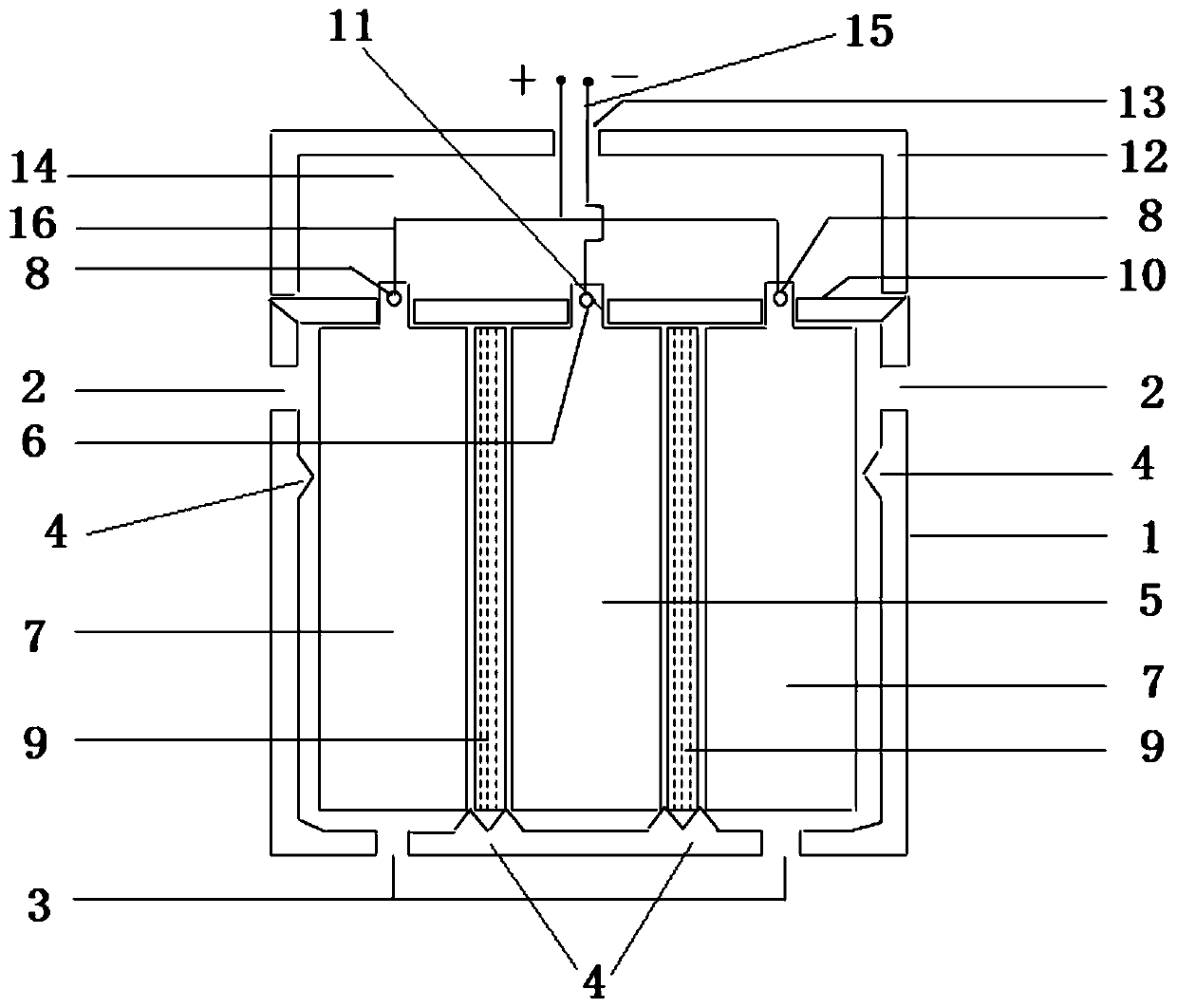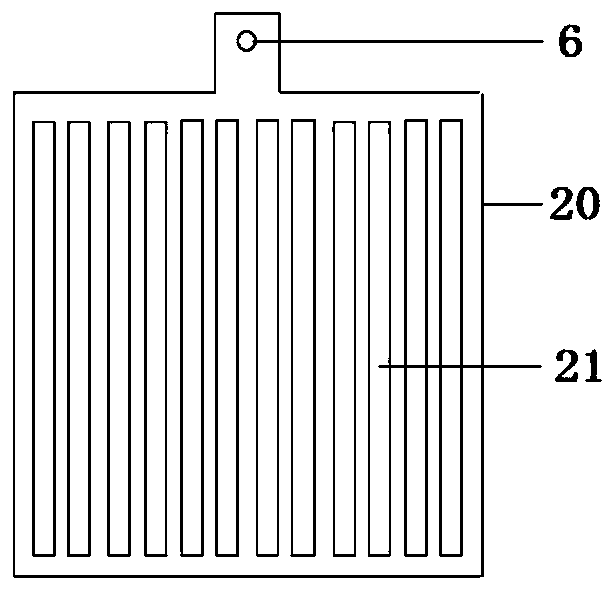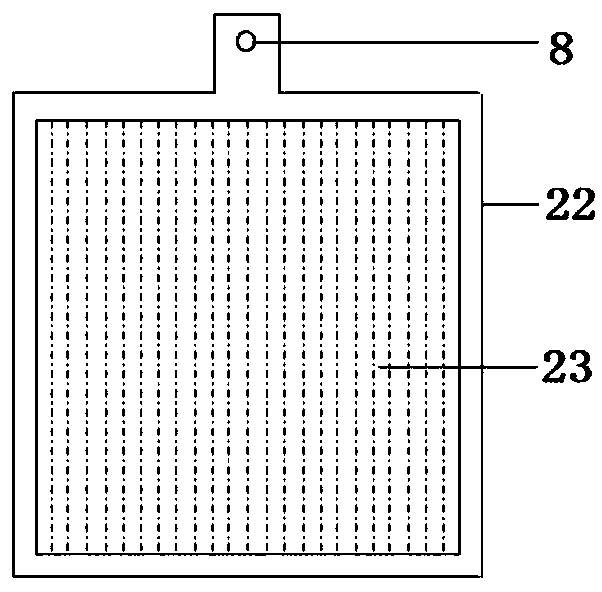A graphene-magnesium seawater battery device
A seawater battery and graphene technology, applied in battery electrodes, immersion batteries, aqueous electrolytes, etc., can solve the problems of limiting marine scientific research, expensive materials, and difficulty in popularization and use, and achieve good catalytic reduction and catalytic effects.
- Summary
- Abstract
- Description
- Claims
- Application Information
AI Technical Summary
Problems solved by technology
Method used
Image
Examples
Embodiment 1
[0026] The graphene-magnesium seawater battery device involved in this embodiment is composed of a group of graphene-magnesium seawater battery units, and the main structure of the graphene-magnesium seawater battery unit is as attached figure 1 Shown includes shell 1, upper permeable hole 2, bottom permeable hole 3, raised cone 4, magnesium alloy anode plate 5, negative terminal 6, graphene composite cathode plate 7, positive terminal 8, ion guide plate Grid 9, inner cover 10, terminal through hole 11, outer cover 12, wire hole 13, pressure-resistant area 14, negative output lead 15 and positive output lead 16; There is an upper permeable hole 2, and the bottom of the housing 1 is provided with a bottom permeable hole 3. The upper and bottom of the housing 1 are provided with a triangular-shaped convex cone 4, and the inner center of the housing 1 is provided with a rectangular plate-shaped structure. Magnesium alloy anode plate 5, the top of the magnesium alloy anode plate 5...
PUM
| Property | Measurement | Unit |
|---|---|---|
| current density | aaaaa | aaaaa |
| thickness | aaaaa | aaaaa |
| thickness | aaaaa | aaaaa |
Abstract
Description
Claims
Application Information
 Login to View More
Login to View More - R&D
- Intellectual Property
- Life Sciences
- Materials
- Tech Scout
- Unparalleled Data Quality
- Higher Quality Content
- 60% Fewer Hallucinations
Browse by: Latest US Patents, China's latest patents, Technical Efficacy Thesaurus, Application Domain, Technology Topic, Popular Technical Reports.
© 2025 PatSnap. All rights reserved.Legal|Privacy policy|Modern Slavery Act Transparency Statement|Sitemap|About US| Contact US: help@patsnap.com



